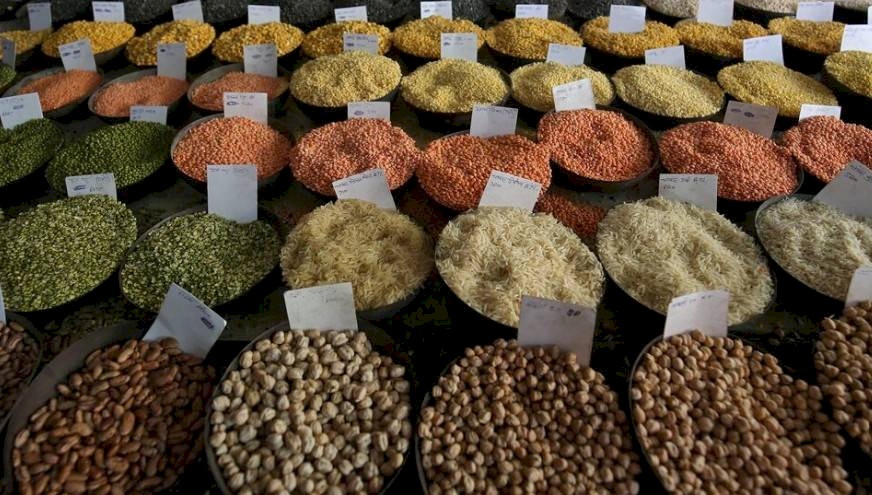
8 Protein and Fiber-Rich Foods That Promote Gut and Heart Health
SadaNews - Getting enough fiber supports good digestion and helps prevent heart diseases, diabetes, and some types of cancer. Meanwhile, protein helps build bones, muscles, skin, tissues, and hormones. These eight foods can help you meet your daily requirements of both nutrients.
Lentils
Lentils are legumes commonly used in soups, Lebanese Mujadara, and the Indian dish "Dal", containing 7.8 grams of fiber and 9 grams of protein in half a cup, according to Very Well Health.
These small, nutritious legumes have antioxidant and anti-inflammatory properties; they provide fiber, protein, iron, folate, and potassium. Eating lentils may give your gut health a significant boost due to their content of "prebiotics" that nourish beneficial gut bacteria.
Pumpkin seeds
Pumpkin seeds provide protein, fiber, and magnesium, a mineral that helps regulate blood pressure.
A 2021 study found that roasting pumpkin seeds at 160 degrees Celsius increased their antioxidant and flavonoid properties. Some flavonoid compounds have anti-inflammatory effects.
Chia seeds
Chia seeds have become a staple in healthy diets due to their content of "Omega-3" fatty acids, antioxidants, protein, and fiber.
Add one to two tablespoons to milk to prepare a nutrient-rich chia pudding. You can also mix chia seeds with yogurt or soup to reduce inflammation and support digestive health.
Sapote fruit
Sapote is a high-fiber tropical fruit with a taste reminiscent of a blend of squash, apricot, or sweet potatoes. You can eat the fruit raw or blend it into a milkshake or ice cream for a delicious dessert. Fresh sapotes are best stored in the refrigerator to extend their shelf life.
Whole grain bread
Making a sandwich using whole grain bread instead of white bread can add fiber, protein, and antioxidants to your lunch meal.
Whole grains consist of three layers: bran, germ, and endosperm. White bread uses processed grains that contain only the endosperm, which means that the fiber and most vitamins are lost when the other two layers are removed.
Black beans
Black beans can help lower cholesterol, especially when consumed instead of animal products. These legumes are rich in iron, magnesium, fiber, protein, and zinc, a scarce mineral that supports your immune system.
Brussels sprouts
Brussels sprouts can add fiber, protein, Vitamin "C", Vitamin "K", and folate to your diet. Folate is an important B vitamin that supports DNA production and helps prevent some birth defects.
Edamame
Edamame is immature green soybeans. Steamed or boiled edamame is a popular Japanese dish. This nutritious snack contains protein, fiber, and potassium.
Although some believe that soybeans cause breast cancer, research shows that edamame and other dietary sources of soy can help reduce the risk of cancer.

Scientists Attempt to "Intercept Cancer" Before Its Formation.. Know the Details

American Fact-Checking Platform Exposes Trump's Exaggerations in State of the Union Addres...

How Mourinho Deceived Everyone and Watched the Match Between Real Madrid and Benfica from...

Fat Loss Improves Blood Pressure and Supports Immunity

Galaxy S26 Armed with a Smart Feature to Combat the Most Dangerous Threats to Smartphones

Discovery of Microplastic Particles in 90% of Prostate Cancer Cases

Artificial Intelligence Diagnoses Children's Brain Tumors with 92% Accuracy Without Surger...

